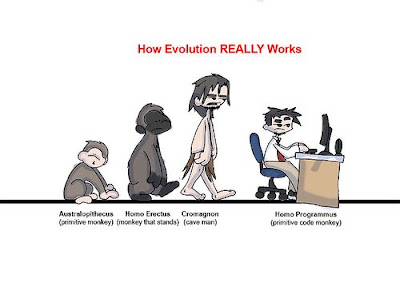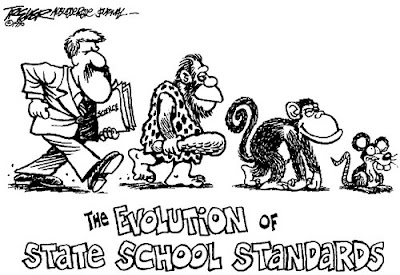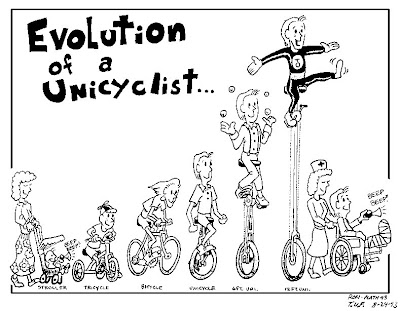![]()
For the last two weeks on Thursdays we have brought you special editions of Outside the Box featuring World Money Analyst Managing Editor Kevin Brekke’s interviews with WMA contributing editors. We heard from Ankur Shah on emerging markets and Alexei Medved on Russia, and this week we wrap up the series with a frank, hard-hitting interview with Dirk Steinhoff, who covers the European and Scandinavian markets for WMA.
Kevin and Dirk are both based in Switzerland, and so they lead off with a discussion of the recent Swiss referendum on immigration. Dirk’s interpretation of the vote, which imposes quotas on the number of foreigners allowed to enter the country, is that it has implications for the entire European Union:
[T]he Swiss people basically decided that they want to control immigration themselves and do not want to give up this control to the centralized administration in Brussels. I think that this is a clear signal to the Swiss government that the Swiss people don’t want to give up more sovereignty and that they would like to see more decentralization in the future.
Which leads Kevin and Dirk to take up the broader issues of the unresolved Eurozone debt crisis, unemployment mess, and the fate of the euro. With EU parliamentary elections coming up in May, there is change in the air! OK, let’s turn it over to Kevin and Dirk for the details.
John Mauldin, Editor
Outside the Box[email protected]
World Money Analyst Update on Europe
World Money Analyst: With me today is Dirk Steinhoff. Dirk is a contributing editor at World Money Analyst and covers the European and Scandinavian markets. Great to have you with us.
Dirk Steinhoff: Thank you very much for having me.
WMA: Seeing that you’re in Zurich and I’m in Fribourg, let’s start with a look at developments in our own backyard. The Swiss are known for their system of direct democracy via use of the referendum. The recent success of a referendum that will restrict immigration into Switzerland made global headlines. What’s your position on the immigration issue and the consequences of this vote?
Dirk: First of all, I should mention that I was born and raised in Berlin and moved with my family to Switzerland in 2007. One of the main reasons why I decided to leave Germany and come to Switzerland, next to the great Swiss landscape, was the strongly centralized development of the European Union, which reminds me painfully of the political system in the former DDR [communist East Germany].
European politicians live a life that is completely detached from those that don’t belong to this elitist political class. Their decisions are based on distorted experience and lobbyist influence and not on real life experience and independent judgment. The strong, centralized power of Brussels, in combination with the desire to regulate everything in life, increasingly limits personal freedom, limits the development of entrepreneurship (and therefore the creation of non-government-related workplaces), and eliminates local, regional, and national characteristics.
The state is much less dominant in Switzerland, mainly due to its federalist and decentralized political system, which limits the power of the federal government. Due to my own background and my own moral conviction, I personally believe that every human being should be able to live and work wherever he or she wants, as long as they are self-reliant, willing to integrate, and do not become a burden to the community they recently entered.
My interpretation of the referendum is that the Swiss people basically decided that they want to control immigration themselves and do not want to give up this control to the centralized administration in Brussels. I think that this is a clear signal to the Swiss government that the Swiss people don’t want to give up more sovereignty and that they would like to see more decentralization in the future.
It also interesting to note that most of the media in Europe (even Swiss media) were shocked by the outcome of the vote. In sharp contrast, other polls in various European countries actually show that most citizens would have voted similarly to the Swiss, and some by an even higher margin than the outcome of the Swiss vote. I think that in the long run more and more of the European people will ask for the Swiss model of democracy to be implemented in their home countries.
Although the rhetoric used by politicians in Europe might change to the negative in the short term, I do not think that the referendum will have a long-term negative effect on the relations between Switzerland and Brussels. I believe that Brussels has to come to terms with our form of democracy and has to respect our sovereignty, even if they might disagree with some of our decisions.
WMA: The immigration debate is not unique to Switzerland, of course, and is a divisive issue across Europe. This seems to be part of a trend where we’ve seen a rise in popularity of nationalist and anti-euro parties? What’s your view?
Dirk: You are right. The severe criticism of Switzerland because of the outcome of the referendum has eclipsed the fact that many European countries face the same issue. People are not only unhappy with the immigration politics within the EU, they are becoming more EU skeptical in general.
The political parties critical of the European Union – like the UK independence party in Great Britain, the Finns Party (formerly the True Finns) in Finland, the Lega Nord in Italy, the FPÖ in Austria, the AfD in Germany, the French Front Nationale, the Golden Dawn in Greece, and the Party of Freedom in the Netherlands – are gaining popularity. Of course, the reasons for and the scope of their EU criticism vary a lot.
I think this trend can be summed up as follows: the people want to have a voice and be able to decide their own fate! Pretty much everybody in the EU is unhappy about one issue or another. The Southern European countries are unable to cope with the austerity measures, and on the other hand you have a large part of the German population that is simply unwilling to continue financing the complete EU. I believe this trend will gain momentum, and it will bring some surprises in the elections to the European Parliament in May 2014.
Europe has so many different cultures that centralization just doesn’t work, because there isn’t a one-size-fits-all answer to most issues. The euro is a perfect example of this!
WMA: That’s an important point on the euro. With the continued rise of anti-euro sentiment, what is your outlook for the currency? Will the euro survive?
Dirk: I don’t know. There are different scenarios that I can imagine for the euro: strong countries leaving the Eurozone, unwilling to pay for a bottomless pit of EU debt; weak countries leaving the Eurozone in order to be able to devalue their currencies and regain competiveness; or a split into a strong northern euro and a weaker southern euro. Or some combination of these. As you can see, there are many possibilities, and what we will see depends on economic and political developments in European countries over the next several years. In my view, something will happen and we won’t have the same euro in five years time that we have today.
WMA: The adoption of the common currency has limited how individual countries can respond to fiscal stresses. News about the euro debt crisis has been very quiet lately. What is the situation?
Dirk: As you say, there has hardly been any news recently regarding the troubles in the EU, which does not mean that the problems are solved. They are still bubbling under the surface. With the current papering-over and continuation of indebtedness, the need to address the problems, with their inherent negative consequences for most people, has been postponed. Because of that, most of the harsh protest has faded and turned away from the streets and is canalized into the euro-skeptic political parties. And when there have been noteworthy protests, such as last November in French Brittany, media coverage was excluded.
What has changed in the last year? Absolutely nothing fundamentally! So the euro crisis will at some point reappear with all its inevitable consequences.
WMA: You mention France, so let’s continue down that path. The small and mid-sized Eurozone countries – Spain, Portugal, Italy, and Greece – are essentially bankrupt as measured by GDP and in receivership by Brussels. Today, there is growing speculation that France, too, is headed for trouble soon. What do you think?
Dirk: I totally agree! They have too much debt, a radical socialist government, and absurd, business-unfriendly regulation. I have several friends who are business owners in France, and they are all contemplating leaving the country and moving their businesses abroad. The quantity of regulation they have to comply with simply cannot be handled by a normal business, and the labor laws are so strict that no business owner in their right mind wants to take on the risk of employing someone.
Taking into consideration the unhealthy debt levels they have, the unsustainable social programs they offer, and the complete lack of any growth impulses, I have to believe that the French are indeed headed for trouble soon. And, as the second largest economy in the EU, France matters. If France stumbles, the EU is at risk.
WMA: Drawing on your comments about strict labor laws, the unemployment numbers in many EU countries are mind-boggling. You discussed this situation in your recent article for World Money Analyst. Can you talk about this for a minute?
Dirk: As we have seen since 2008, the trillions in newly created fiat money have mainly fueled asset bubbles. However, the real economy has not profited from it, because this money has not been lent to private industry. We are still facing 30% lower money velocity than before 2008 and that means that more than 30% of credit in circulation has disappeared. This is also why the real economy is still going down the drain.
Most jobs have been created within the government or government-related entities; and as we all know, these jobs are paid for by the taxpayers and are not a source of production. Therefore, I personally believe the situation in the labor market will further deteriorate, especially among the young generation, below 25; they are going to suffer the most. The current youth unemployment rates in Spain and Italy are just shocking: 58% and 42%, respectively. We are losing a whole generation, and we cannot predict how drastically the damage we are doing to them will play out in the future.
WMA: High and sustained rates of joblessness can lead to frustration and anger by the unemployed that turns to civil unrest and protests. We’ve seen riots in several EU countries, including France, Greece, and Bosnia. Is that also a real danger for the stronger European countries?
Dirk: Yes, this is a real danger. As soon as the deterioration of people’s personal economic situations reaches a certain level they will be on the streets, and that includes the streets of the stronger countries. At the moment, most people still believe that all the debt and all the rescue programs come for free.
WMA: What does this all mean for the outlook for European stocks and bonds?
Dirk: That you have to watch closely what the European Central Bank and governments do. It’s a tricky situation – you don’t want to miss any upside rallies in equities and bonds induced by loose monetary policies. Yet, on the other hand you know the party could end at any time. Risk management is essential. The day of reckoning can be postponed by governments and central banks much further – as we know from the US and Japan – than common sense would allow for.
WMA: In your opinion, what European countries have the best economic outlook?
Dirk: The countries that have been strong in the past, with competitive industries and with sound current-account and budget balances. Countries like Germany, Austria, Denmark, Sweden, and Norway. And Switzerland.
WMA: As you mentioned above, in May 2014 there will be the EU Parliament election. Will that change anything?
Dirk: The potential increase of parliamentarians that are critical of Europe I mentioned before could intensify tensions within the EU and complicate the functioning of the EU system. But I don’t expect a quick change.
WMA: We must talk about the un-loved Swiss franc. Since Switzerland began intervention in the currency markets to halt the rise of the franc against the euro, the mainstream consensus has it that the franc is doomed. But the performance of the franc against other currencies, in particular the US dollar, has been very strong. What’s your take on the Swiss franc going forward?
Dirk: It’s hard to say. In a euro crisis I would expect the Swiss National Bank [the central bank] to remove the floor to the euro. In such a situation the power of the SNB to keep the floor would be simply too small, I think. There are also attempts in Switzerland to once again constitutionally back the Swiss franc by gold. We’ll have to see. The Swiss franc, to me, still belongs to the upper class of paper currencies.
WMA: Do you have any last thoughts for our readers?
Dirk: Globally, we have entered a time when substantial corrections of past misadventures are likely to occur. It’s not the end of the world, but it’s worth being prepared.
WMA: I really appreciate your insights on the European markets. Thank you for taking the time to speak with us today.
Dirk: The pleasure was mine.
Like Outside the Box?
Sign up today and get each new issue delivered free to your inbox.
It’s your opportunity to get the news John Mauldin thinks matters most to your finances.
© 2013 Mauldin Economics. All Rights Reserved.
Outside the Box is a free weekly economic e-letter by best-selling author and renowned financial expert, John Mauldin. You can learn more and get your free subscription by visiting www.MauldinEconomics.com.
Please write to [email protected] to inform us of any reproductions, including when and where copy will be reproduced. You must keep the letter intact, from introduction to disclaimers. If you would like to quote brief portions only, please reference www.MauldinEconomics.com.
To subscribe to John Mauldin’s e-letter, please click here: http://www.mauldineconomics.com/subscribe
To change your email address, please click here: http://www.mauldineconomics.com/change-address
Outside the Box and MauldinEconomics.com is not an offering for any investment. It represents only the opinions of John Mauldin and those that he interviews. Any views expressed are provided for information purposes only and should not be construed in any way as an offer, an endorsement, or inducement to invest and is not in any way a testimony of, or associated with, Mauldin’s other firms. John Mauldin is the Chairman of Mauldin Economics, LLC. He also is the President of Millennium Wave Advisors, LLC (MWA) which is an investment advisory firm registered with multiple states, President and registered representative of Millennium Wave Securities, LLC, (MWS) member FINRA, SIPC, through which securities may be offered . MWS is also a Commodity Pool Operator (CPO) and a Commodity Trading Advisor (CTA) registered with the CFTC, as well as an Introducing Broker (IB) and NFA Member. Millennium Wave Investments is a dba of MWA LLC and MWS LLC. This message may contain information that is confidential or privileged and is intended only for the individual or entity named above and does not constitute an offer for or advice about any alternative investment product. Such advice can only be made when accompanied by a prospectus or similar offering document. Past performance is not indicative of future performance. Please make sure to review important disclosures at the end of each article. Mauldin companies may have a marketing relationship with products and services mentioned in this letter for a fee.
Note: Joining The Mauldin Circle is not an offering for any investment. It represents only the opinions of John Mauldin and Millennium Wave Investments. It is intended solely for investors who have registered with Millennium Wave Investments and its partners at http://www.MauldinCircle.com (formerly AccreditedInvestor.ws) or directly related websites. The Mauldin Circle may send out material that is provided on a confidential basis, and subscribers to the Mauldin Circle are not to send this letter to anyone other than their professional investment counselors. Investors should discuss any investment with their personal investment counsel. You are advised to discuss with your financial advisers your investment options and whether any investment is suitable for your specific needs prior to making any investments. John Mauldin is the President of Millennium Wave Advisors, LLC (MWA), which is an investment advisory firm registered with multiple states. John Mauldin is a registered representative of Millennium Wave Securities, LLC, (MWS), an FINRA registered broker-dealer. MWS is also a Commodity Pool Operator (CPO) and a Commodity Trading Advisor (CTA) registered with the CFTC, as well as an Introducing Broker (IB). Millennium Wave Investments is a dba of MWA LLC and MWS LLC. Millennium Wave Investments cooperates in the consulting on and marketing of private and non-private investment offerings with other independent firms such as Altegris Investments; Capital Management Group; Absolute Return Partners, LLP; Fynn Capital; Nicola Wealth Management; and Plexus Asset Management. Investment offerings recommended by Mauldin may pay a portion of their fees to these independent firms, who will share 1/3 of those fees with MWS and thus with Mauldin. Any views expressed herein are provided for information purposes only and should not be construed in any way as an offer, an endorsement, or inducement to invest with any CTA, fund, or program mentioned here or elsewhere. Before seeking any advisor’s services or making an investment in a fund, investors must read and examine thoroughly the respective disclosure document or offering memorandum. Since these firms and Mauldin receive fees from the funds they recommend/market, they only recommend/market products with which they have been able to negotiate fee arrangements.
PAST RESULTS ARE NOT INDICATIVE OF FUTURE RESULTS. THERE IS RISK OF LOSS AS WELL AS THE OPPORTUNITY FOR GAIN WHEN INVESTING IN MANAGED FUNDS. WHEN CONSIDERING ALTERNATIVE INVESTMENTS, INCLUDING HEDGE FUNDS, YOU SHOULD CONSIDER VARIOUS RISKS INCLUDING THE FACT THAT SOME PRODUCTS: OFTEN ENGAGE IN LEVERAGING AND OTHER SPECULATIVE INVESTMENT PRACTICES THAT MAY INCREASE THE RISK OF INVESTMENT LOSS, CAN BE ILLIQUID, ARE NOT REQUIRED TO PROVIDE PERIODIC PRICING OR VALUATION INFORMATION TO INVESTORS, MAY INVOLVE COMPLEX TAX STRUCTURES AND DELAYS IN DISTRIBUTING IMPORTANT TAX INFORMATION, ARE NOT SUBJECT TO THE SAME REGULATORY REQUIREMENTS AS MUTUAL FUNDS, OFTEN CHARGE HIGH FEES, AND IN MANY CASES THE UNDERLYING INVESTMENTS ARE NOT TRANSPARENT AND ARE KNOWN ONLY TO THE INVESTMENT MANAGER. Alternative investment performance can be volatile. An investor could lose all or a substantial amount of his or her investment. Often, alternative investment fund and account managers have total trading authority over their funds or accounts; the use of a single advisor applying generally similar trading programs could mean lack of diversification and, consequently, higher risk. There is often no secondary market for an investor’s interest in alternative investments, and none is expected to develop.















































